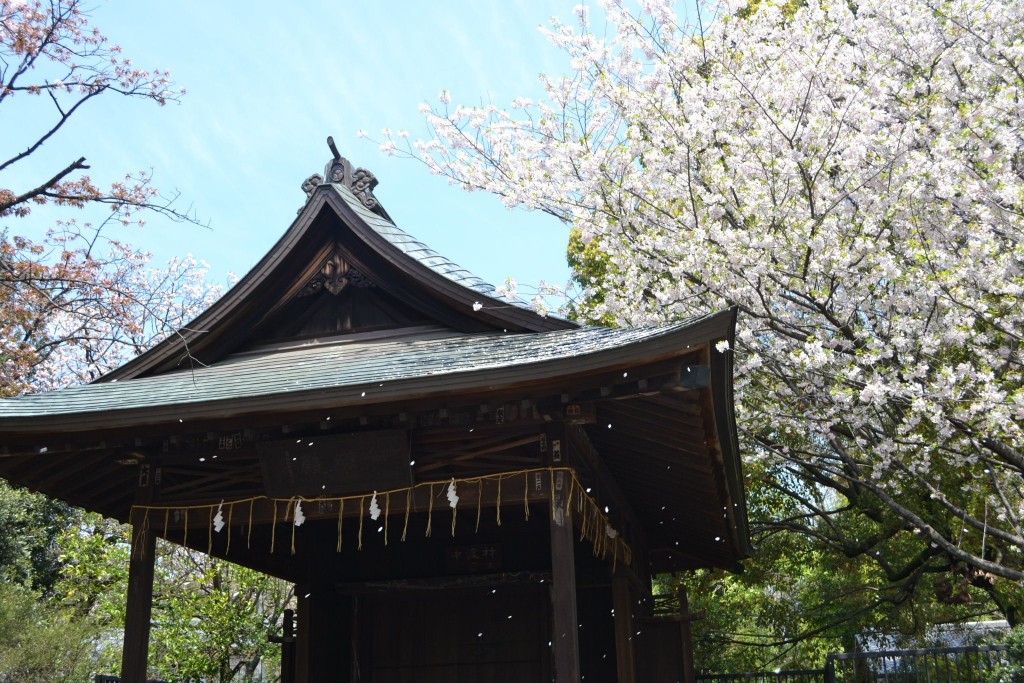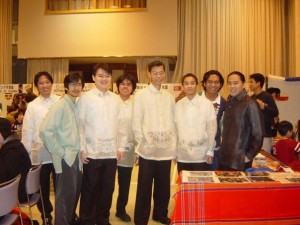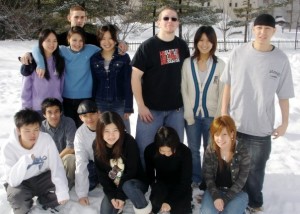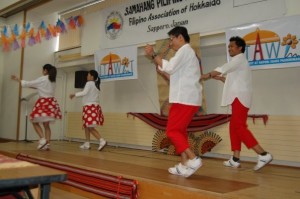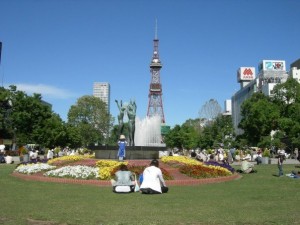We might've come across this at least in one point in our lives, you know, that crossroads of "Am I Pilipino or American?" Now imagine throwing a third element at that crossroads something like, say... living abroad where The Namesake meets Lost in Translation? Heaven knows that there are fellow Fil-Ams who can relate: interestingly enough, I became more aware of UniPro thanks to our editor's entry about experiences with her Fil-Am identity as she taught in northwestern Thailand. Reading Ryann's bit had me recall a pivotal event in my life: my senior year of high school in Japan.
In a nutshell, I chose to make the most out of my final year of high school by choosing study abroad. While my parents would've loved to have me study in the Philippines, I wanted to go outside familiarity and to be able to experience a different country, culture, and lifestyle that wasn't completely related to my ethnicity nor my nationality. And so I spent senior year at Hokkaido International School (HIS) in Sapporo. And it was within a few weeks into my time at HIS came that particular revelation from a Pinay friend and classmate, when she gave me a certain revelation:
"You're not Filipino."
While I've struggled with this identity crisis before, I've never had it so bluntly laid out in front of me that night, more so in Japan and not in the US or in the Philippines as what Ryan Songalia experienced! I vividly remember the confusion I had as I walked down the cold winter streets of Sapporo in tears, the Kanji of the signs that I passed seemed just as incomprehensible as the emotions and thoughts I had. Until then I thought I embraced my heritage, I believed that I could proudly call myself a Pilipino. However, I didn't realize it immediately that night but I eventually grew to appreciate such an epiphany.
During the weekends, I would hang out with Pilipino friends who were scholars in the graduate programs at Hokkaido University or Hokudai for short. Admittedly, it was a challenge at times when they would speak in Tagalog but it allowed me to immerse myself in a language that I typically would only hear whenever TFC was on at home or at Fil-Am potlucks. One of my Hokudai kuyas used to joke that when I returned home from Japan, I'd be more fluent in Tagalog than Japanese! Alongside picking up some Tagalog, I learned of terms that I wasn't typically exposed to in my sheltered life in suburban Southern California, words ranging from Japayuki to TNT.
During my experience I watched the scholars create Hokkaido Association of Filipino Students (HAFS) with the first meeting coinciding with the birthday party they hosted for me and fellow scholars. Can't forget enjoying apritada and birthday cake while using chopsticks! I remember how we'd have informal initiations where the newcomer has to do at least one song at the karaoke bar. I managed to hold out until my final weeks where I ended up giving a rendition of With or Without You. But one thing I loved about those karaoke trips was that some bars actually had Filipino songs! I began missing my vain attempt at Bono when I disgraced Carol Banawa's Iingatan Ka. And alongside HAFS, I grew acquainted with some engineers who worked with local technology firms and Pilipina housewives who joined their Japanese husbands in Hokkaido.
The most prominent of the housewives was Tita Susan, a wonderful lady whose goal was to bring a more positive image of the local Pilipino community; that image was one that went beyond the stereotypes of young Pilipinas working in bars and clubs with some entering prostitution. It's certainly a tough image to shake off (I'll never forget a Japanese friend joking about having me bring back a stripper when I come back from my spring break trip to the Philippines) but Tita Susan would do her best to help fight such stereotypes. She would always lend a hand in coordinating Pilipino cultural events, link Pilipinos across across the island through the Samahang Pilipino ng Hokkaido organization, and even offer her home for us to practice folk dance which we'd then perform in local festivals. Looking back, my first ever physical involvement with Gawad Kalinga was through a fundraiser that Tita Susan where I ended up strapping myself with coconuts to dance the Maglalatik!
As I grew more involved with the Pilipino community of Sapporo, I realized that there was more than just my lack of fluency in Tagalog that had me lost in translation. Admittedly one of my favorite examples was the idea of "courting" in relationships seems to be a hot topic of debate as I watch Fil-Am friends and family go at it on every other trip back to Iloilo! Bit by bit, the revelation that my Pilipina friend at HIS started to make more sense. I mentioned that I started to appreciate it--not in the sense that I was glad to not be identified as a Filipino but instead as someone who has benefited from living through two different sets of perspectives and values.
And I can't help emphasize that out of all places and times that I would come to appreciate this outlook, it was during the study abroad experience in Japan. This experience helped me realize that my identity was further magnified by how I was perceived not by just Pilipinos or Americans, but instead by the local Japanese and my friends and classmates. They comprised of 30+ nationalities at HIS, and many could relate with identity crises as Third Culture Kids or as haafu, children of Japanese and international blood but aren't considered by local society as Japanese at all, due to their diverse heritage in a ethnically homogenous society.
A couple years ago, David Casuco shared an eloquent solution to his college-bound son's own experience with the Fil-Am identity crisis:
"Imagine a person who is a beneficiary of two great cultures. If he is smart enough to pick the best of both worlds, it is definitely a great thing."
I feel that my time in Sapporo allowed me to more strongly draw from both worlds, while being exposed to a third foreign one. My experiences there helped me appreciate more of how much I've taken for granted as a Fil-Am, and how such tight-knit Filipino communities overseas go beyond just potlucks. It certainly was an experience that has helped me in being more content with my disposition. And through that, I want to emphasize to fellow Fil-Ams to interact with the local overseas Pilipino communities when going abroad. Who knows, maybe alongside learning the identities that make up the overseas Pilipino communities that you might find something that helps shape your own.

